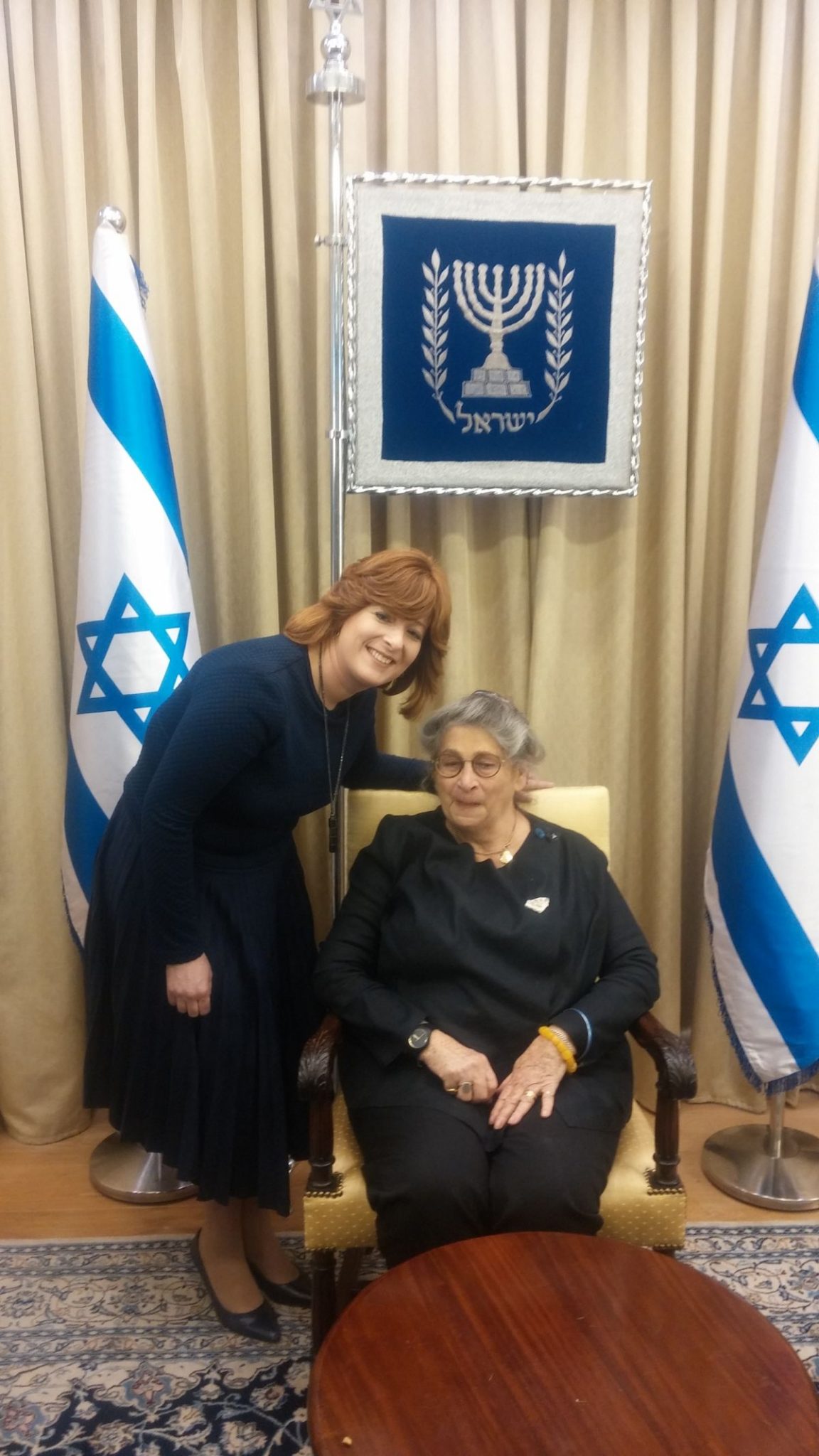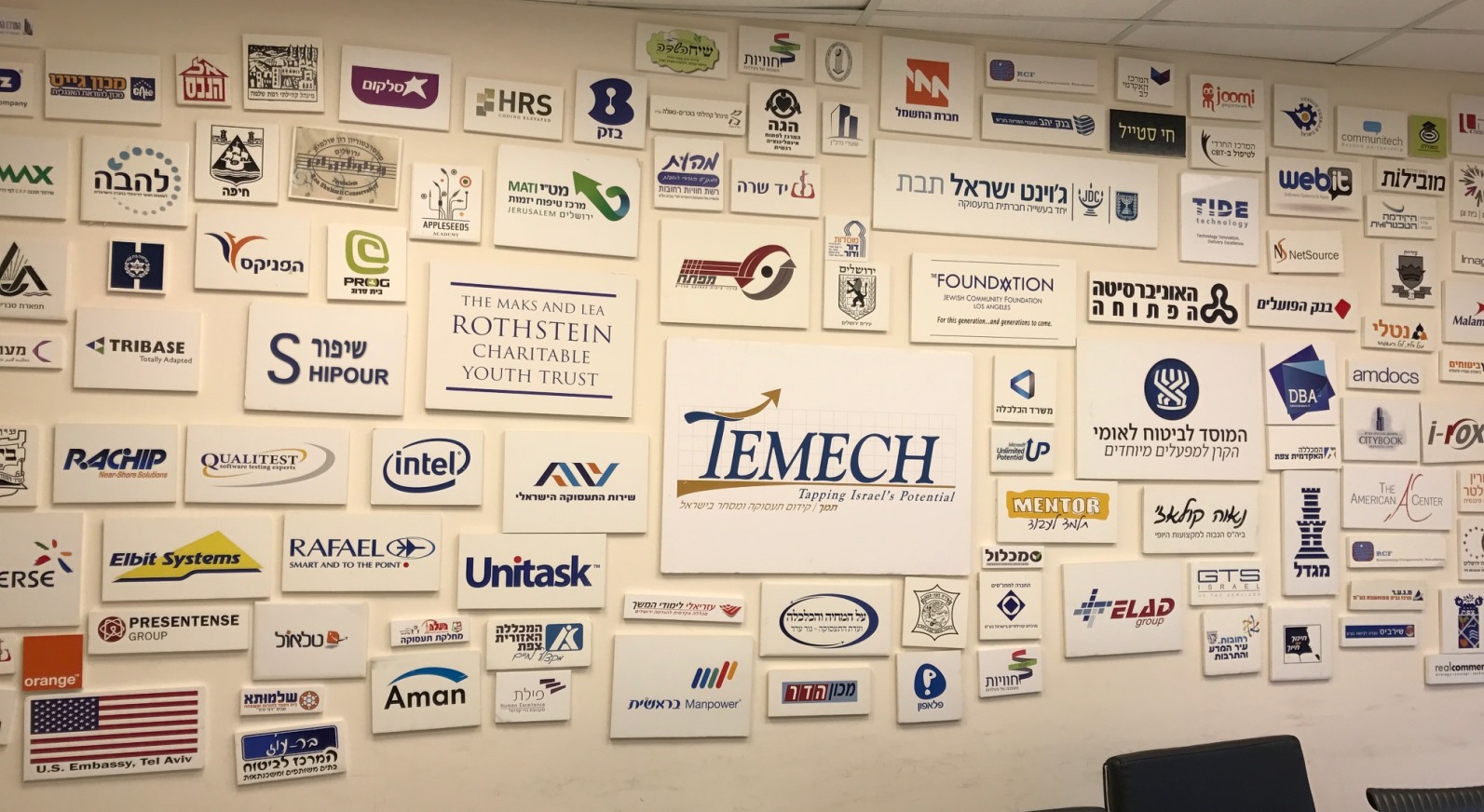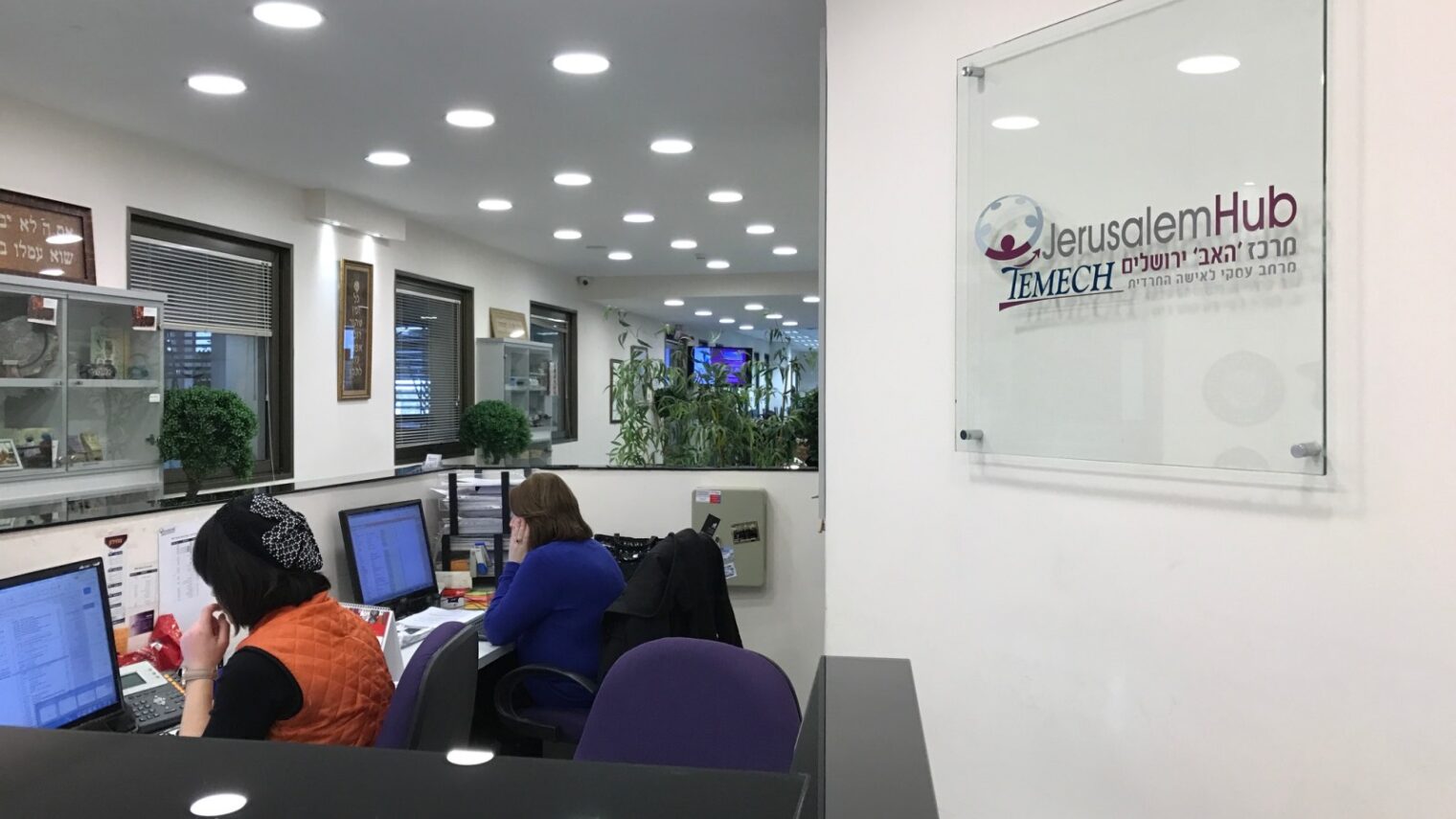Sari Roth, an ultra-Orthodox (Haredi) mother of seven from Bnei Brak, was invited to represent Haredi women in high-tech at an International Women’s Day gathering this week hosted by Israeli First Lady Nechama Rivlin.
Roth cofounded Bontact with Tzvi Cohen in 2015 as a smart multi-channel platform for customer-to-business communication, and today boasts an international clientele.
She is married to a full-time Talmudic scholar and has no formal business training.

“My husband learns and this is why I’m doing what I’m doing. It’s not for the sake of being a career woman,” Roth tells ISRAEL21c in self-taught English. “I learned programming in seminary for one year and got married in the middle and didn’t continue. When we got married, I saw he had the talent to be a great learner and I said I’d do my best to support the family.”
In many Israeli Haredi families, the wife is the breadwinner as her husband devotes his days to religious study. Over the past decade, all-female programming shops have sprung up to provide an alternative to traditional childcare and teaching professions.
These “near shore” shops offer outsourcing services at near off-shore rates. The women earn software engineering certificates in post-high-school religious seminaries and accept lower wages in return for a work environment that suits their lifestyle and large families. But they have few opportunities for skills development and advancement.
Women like Sari Roth, Tikva Schmidt and Shaindy Babad are trailblazing a new direction.
The TIDE turns
“The first revolution was pushing women into software development and the second revolution is making it into a satisfying profession,” Schmidt tells ISRAEL21c at TIDE’s Jerusalem office, where photos aren’t permitted out of respect for the employees’ strict code of modesty.
Schmidt, now 43, founded TIDE (Technology. Innovation. Delivery. Excellence.) five years ago to offer Haredi women “the opportunity to work at a high professional level in a stable, supporting environment while constantly learning and being empowered.”
She believes this environment also leads to better results for clients, which include startups and established businesses in Israel and the United States.
Born to American immigrants, Schmidt earned a computer science degree from Hebrew University and worked for 20 years as a developer, software system architect and R&D manager. She credits her husband with encouraging and facilitating her career as they raised their 10 children.
“In my previous job in Ramat Gan, for seven years I was the only woman in R&D, the only religious person in the company and the only one with more than three kids,” Schmidt relates.
“I realized I could do something for religious women that no one else could do. I had an inner drive to create high-quality jobs in high-tech so that women – not only Haredi — could combine top-level development with being mothers, and enjoy both. Regular high-tech is not structured correctly for mothers; it’s geared to coming in late, having long lunches and working overtime.”
Co-working hub
Schmidt has resisted offers of investment and acquisition so as to retain a strong guiding hand in nurturing female project managers, system architects and technology leaders.
But bootstrapping was made easier by starting off in the Jerusalem Hub, a co-working space for religious women run by Temech, a nonprofit which provides services such as job recommendations, mentoring, training courses and networking groups.

Many of the women who lease an office or a desk at the hub represent a new niche of Haredi women establishing themselves as high-tech freelancers. Others find jobs at places such as TIDE through Temech’s contacts.
Still others get help from Temech in starting businesses in fields as diverse as real estate, graphic design, sewing and insurance. The usual channels for learning hard and soft business skills don’t offer a comfortable environment for the increasing number of Haredi women interested in such courses.
“A few years ago we advertised a workshop on dealing with business finances, and nobody came. A few weeks ago we offered it again and about 50 women came,” says Miri Green, 31, coordinator for new projects.
Temech was founded in 2005 with backing from an American Haredi organization; it’s now supported by various foundations and private donors, according to CEO Shaindy Babad, who came aboard in 2008.
At the start, Temech approached large companies with an attractive proposal to train Haredi women to fill specific open positions. One of the companies that agreed to participate was Intel, which today employs more than 100 religious women. Now, employers seek out Temech as a source for stable, loyal employees, Green tells ISRAEL21c.
Temech has created an estimated 6,200 new jobs and has hosted 2,000 hub members, three accelerators with 42 participants, 615 workshop participants and three mentoring programs for 803 mentees. Nearly 10,000 women have attended Temech’s professional conferences, and thousands share business tips and questions on a moderated online forum.
Temech’s Kesharim networking groups, started last year, meet in 12 places, including Haifa, Netanya, Bnei Brak, Beit Shemesh, Beitar and Safed (Tzfat). Another 20 groups are planned.
Accommodating religious values
Roth, of Bontact, worked in her father’s family business for the first years of her marriage. Then she became a cofounder for a hardware-software startup, CallMe, which served Israeli businesses and evolved into Bontact seven years later. It was accepted into the Microsoft Accelerator in Herzliya, and then moved back to the Haredi enclave of Bnei Brak, east of Tel Aviv.
Bontact’s 12 male and female employees share office space with a Haredi real-estate company that also has a mixed staff.
“It’s actually very common for Haredi companies here to have the genders working together, but in high-tech it’s something new because it’s more challenging,” Roth explains. “In high-tech you’re not only dealing with your own community. You have to deal a lot with the secular world, meeting with investors and joining competitions.”
Roth finds creative ways to accommodate the religious values “that are important and holy to us.” For example, two side-by-side escape rooms, one for men and one for women, were booked for a recent staff bonding activity.
In July last year, Roth was one of two women invited to be on a panel about innovation and diversity at the launch of the Peres Innovation Center.
“People are looking up to me as an example, and I have a kind of mission to encourage others,” Roth says. “I don’t try to hide that I am Haredi — just the opposite. But it’s not simple. I’m convinced that you can’t do this when you’re very young because you have to be strong and sure of yourself.”

















